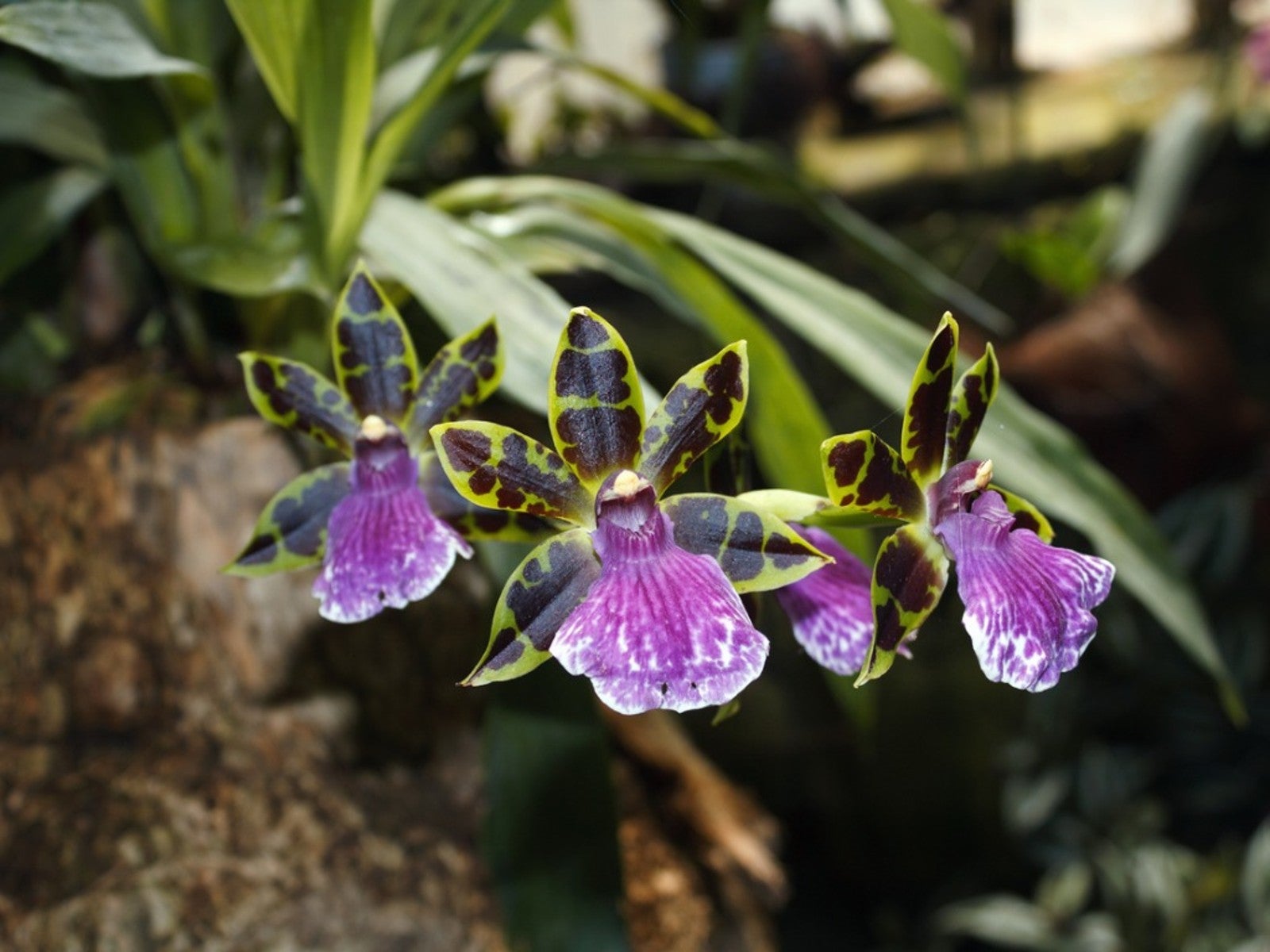Zygopetalum Orchid Care - How To Grow Zygopetalum Orchids


Sign up for the Gardening Know How newsletter today and receive a free copy of our e-book "How to Grow Delicious Tomatoes".
You are now subscribed
Your newsletter sign-up was successful
If you’ve heard of Zygopetalum orchids, you may be wondering how to grow one. If you’ve never heard of one, your interest may now be piqued. Click here for info on Zygopetalum orchids and their care.
Zygopetalum Orchid Care - How to Grow Zygopetalum Orchids
A popular feature of many Zygopetalum orchids is its heady fragrance, which can fill a whole room. Zygopetalum variety orchids are typically green with brown stripes or spots and a white lip with velvety accents of indigo, fuchsia, purple, or maroon.
You may be wondering how to grow Zygopetalum orchids, which originate in tropical South America. Zygopetalum orchid species and hybrids require specific care, but when those needs are met, growing these orchids can be achievable and rewarding.
Zygopetalum Orchid Culture: Zygopetalum Variety of Orchid
Zygopetalum orchid care begins with a healthy species or hybrid plant. The long, glossy leaves should be yellow-green. Although these orchids are epiphytes, which typically cling to trees and collect nourishment from the air, Zygos do not grow aerial roots, so make sure the roots are below the potting medium or right on top of it. Leaves can grow up to 2 feet tall (61 cm.). Flowers will rise from a stem that can grow taller than the leaves.
Light
Zygopetalum orchid culture includes bright but indirect light. Place your orchid near a south-facing window for the best exposure. An east-facing window will work too if the orchid will not be in direct sun. If the leaves begin turning a dark green, there is not enough light, which can hinder blooming.
Temperature
Zygopetalum orchid species and hybrids prefer a moderate temperature during the day and cooler nights. Daytime temperatures from 70 to 80 degrees F. (21-27 C.) are ideal, with nighttime temperatures between 50 and 60 degrees F. (10-16 C.). Those in hardiness zones 9 and 10 can grow their orchids outside with some shade, but the rest of us will need to grow them indoors.
Soil
For the soil use a combination of well-draining materials such as coconut chips, bark, and perlite. Repot the orchid every 12 to 18 months, sooner if the growing medium has broken down or the plant is rootbound.
Sign up for the Gardening Know How newsletter today and receive a free copy of our e-book "How to Grow Delicious Tomatoes".
Water
Zygo orchids need lots of water and high humidity during the warmer months and less once the pseudobulbs have fully formed. (Pseudobulbs are water-storing organs that form between the leaf nodes). Do not let the potting medium completely dry out. Water when the center of the soil begins to dry. To increase humidity, place a pebble tray with water beneath the container. Make certain the pot sits high enough on the pebbles so it cannot absorb the water.
Nutrients
When the orchid is actively growing, fertilize every other watering with a balanced water-soluble fertilizer at half strength. During nonactive periods once a month is plenty. Regularly flush out the potting medium to get rid of excess fertilizer buildup. If the tips of the leaves begin to turn black, this is a sign the fertilizer is building up.
Troubleshooting
They are generally trouble free but avoid wetting the leaves when it is cool because that can lead to black leaf spots. Occasionally they are bothered by scale insects. Dab them with alcohol-soaked cotton balls or spray regularly with neem oil to remove them.

After graduating from Oklahoma State University with a degree in English, Susan pursued a career in communications. In addition, she wrote garden articles for magazines and authored a newspaper gardening column for many years. She contributed South-Central regional gardening columns for four years to Lowes.com. While living in Oklahoma, she served as a master gardener for 17 years.